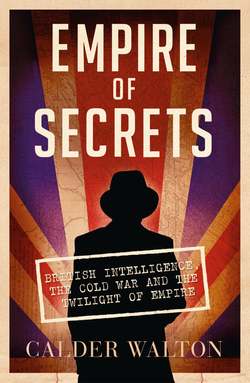Читать книгу Empire of Secrets: British Intelligence, the Cold War and the Twilight of Empire - Calder Walton - Страница 13
2 Strategic Deception: British Intelligence, Special Operations and Empire in the Second World War
Оглавление‘You were a spy then?’
‘Not quite … Really I was still a thief. No great patriot. No great hero. They just made my skills official.’
MICHAEL ONDAATJE, The English Patient1
Towards the end of the Second World War, Sir David Petrie, the wartime Director-General of MI5, wrote to the Foreign Secretary, Sir Anthony Eden, outlining some of the notable successes that MI5 and British intelligence more generally had gained during the war. As Petrie explained, the successes of Britain’s wartime intelligence services had necessarily not been disclosed to the public, and it was likely that they would have to remain under a veil of secrecy for the foreseeable future: ‘The full story can perhaps never be told but if it could be, it could perhaps claim acceptance as truth mainly on the grounds that it seems stranger than fiction.’ In many ways the story of Britain’s wartime intelligence successes still seems stranger than fiction, but luckily for us it can now be told. Put simply, the story is that during the war Britain’s intelligence services gained unprecedented successes: they learned more about their enemies than any power had ever learned about another in the history of warfare. At the end of the war, the Supreme Allied Commander in Europe, General Dwight D. Eisenhower, personally congratulated them for the role they had played, which in his opinion was ‘decisive’ in bringing the conflict to a successful conclusion for the Allies.2
Britain’s intelligence services achieved their wartime successes both in Britain itself and across the empire and British-occupied territories – from the deserts of North Africa to the hilltops of India and the steamy jungles of Malaya. The Second World War was the event that revolutionised Britain’s imperial intelligence responsibilities, with MI5, SIS and GCHQ being directly involved in colonial affairs in earnest for the first time. However, before we can turn in detail to the wartime operations of British intelligence, it is necessary to understand their context. It is only by appreciating how the intelligence services operated domestically, from their headquarters in London, that their activities in distant outposts of the empire can be understood.
